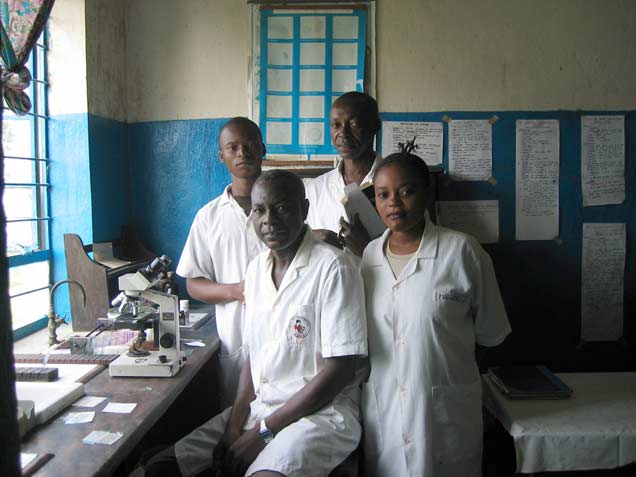Effective medicines regulation is crucial in promoting public health. Medicines regulation incorporates several mutually reinforcing activities including licensing of medicines; importing and exporting of drugs; and distribution, promotion and advertising of medicines. Drug licensing prevents substandard medicines and drug products that fail to meet the quality specifications from entering national markets. The Democratic Republic of the Congo (DRC) witnessed a disastrous situation resulting from a lack of drug regulations. In 2015, a failure to regulate medicines in DRC resulted in the hospitalization of more than 1,000 people, residing in a remote area of the country, who suffered from toxic effects of mislabeled drugs.
Medicine regulation demands the application of sound technical knowledge and skills. In the DRC, the Directorate of Pharmacy, Medicines and Traditional Medicine oversees this activity and is responsible for keeping the National Medicines Registry up to date. The national regulatory staff is responsible for ensuring that the country is complaint with the requirements of the World Health Organization’s (WHO’s) Prequalification of Medicines Program. This program helps ensure that medicines supplied by the international procurement agencies for distribution in resource-limited countries meet acceptable standards of quality, safety and efficacy. Strengthening the capacity of the national medicine regulatory authorities is critical in ensuring the good health of the public.
In December 2017, the PMI-funded Global Health Supply Chain Technical Assistance Francophone Task Order provided technical and financial support to the Directorate of Pharmacy, Medicines and Traditional Medicine of DRC to review the Registry of Medicines authorized for use in the country. The revisions identified that half of all the authorizations (2,322) issued in the period of January 2010 to September 2017 were expired. Additionally, 109 market authorizations were identified to expire within the next three months after the review.
The identification of expired medicines authorizations will help the health authorities in DRC to ensure that the 2015 incident is not repeated. Following this review exercise, the Directorate of Pharmacy, Medicines and Traditional Medicine will comply with the WHO prequalification commission requirement to publish the list of registered medicines every quarter. Quarterly updates of the Medicines Register will provide relevant data for the customs services to track authorized products at the point of entry overall. This represents remarkable progress toward a health supply chain system in DRC to ensure quality pharmaceuticals are available for its citizens.

